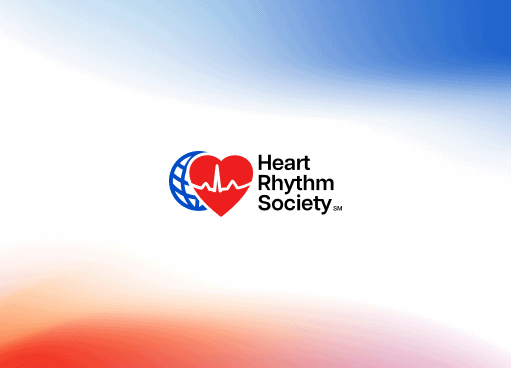August 16, 2023 – Abbott has notified customers of the rare potential for a Bluetooth circuit component malfunction on a subset of Implantable Cardioverter Defibrillators (ICDs) and Cardiac Resynchronization Therapy Defibrillators (CRT-Ds) manufactured prior to April 2022.
Authors
Molly Sachdev, MD; Amit J. Shanker, MD; Lisa Miller, MS; Anne Marie Smith, MBA; Jodie Hurwitz, MD; Christopher F. Liu, MD
Correspondence
[email protected]
Impacted Models
A subset of GALLANT™,NEUTRINO™, AND ENTRANT™ICDs AND CRT-Ds manufactured prior to April 2022
MODELS CDVRA500Q, CDDRA500Q, CDHFA500Q, CDVRA600Q, CDDRA600Q, CDHFA600Q, CDVRA300Q, CDDRA300Q, AND CDHFA300Q
Background of Recall
Safety Notice regarding a subset of Gallant, Neutrino, and Entrant Abbott Implantable Cardioverter Defibrillators (ICDs) and Cardiac Resynchronization Therapy (CRT-Ds) Manufactured Prior to April 2022
Abbott has notified customers of the rare potential for a Bluetooth circuit component malfunction on a subset of Implantable Cardioverter Defibrillators (ICDs) and Cardiac Resynchronization Therapy Defibrillators (CRT-Ds) manufactured prior to April 2022. This issue has been associated with a risk of loss of Bluetooth communication (and therefore a loss of remote monitoring), higher-than-normal current consumption, and markedly reduced device longevity. This risk can be mitigated by routine programmer interrogation, which deploys a firmware upgrade.
Recall Issue Summary
An electrical circuit component in the devices manufactured prior to April 2022 may have a rare malfunction, which will disable Bluetooth telemetry (and therefore remote monitoring), and in a subset of instances, place the Bluetooth circuitry into a higher-than-normal current consumption mode, leading to reduced device longevity due to power consumption.
If a device experiences this issue, primary device functions, including pacing, sensing, shock delivery, and inductive telemetry, remain intact,as does the audible ERI (Elective Replacement Indicator) alert.
If unrecognized, however, high current consumption could result in a lack of therapy and device communications due to accelerated power consumption. The time from Bluetooth (BLE) loss to ERI (Elective Replacement Indicator) has been approximately 1 month for the 9 devices which experienced high current consumption.
Among 67,000 devices distributed globally,16 implanted devices are known to have lost Bluetooth communication due to this issue. Of these, 9 (0.013%) have experienced higher-than-normal current consumption and reduced device longevity. A sub-group of approximately 1,500 devices are more likely to manifest this issue as compared to the remaining 65,500 devices. The estimated risk rate of potential loss of therapy leading to harm is 0.06% and 0.0007%, respectively, in these two sub-groups. There have been no serious harm to patients reported due to this issue.
Risk can be mitigated through routine programmer interrogation, which deploys a firmware upgrade. Abbott has developed upgraded device firmware version pr00.10.87.04, which eliminates the potential for devices affected by this issue from entering the high current consumption mode, should the Bluetooth circuit component issue occur.
If the issue occurs in the devices affected after the firmware has been upgraded, the degree of current consumption is mitigated. While battery longevity is affected in this event, this mitigation provides sufficient time (typically years) for the issue to be detected, and device replacement planned as needed. The battery longevity is accurately displayed for these devices. With the assistance of Abbott Technical Support, it may also be possible to recover normal Bluetooth functionality and normal current consumption.
This advisory does not apply to devices manufactured after March 2022. Abbott states that the reliability of this BLE component in currently manufactured devices is estimated at 99.997%; the error rate is in line with baseline random component error rate.
Manufacturer Recommendations
Abbott is providing the following guidelines:
- Prophylactic device replacement is NOT recommended as the new firmware version pr00.10.87.04 eliminates the potential for loss of therapy between follow-ups due to unrecognized decreased device longevity
- Determine the firmware version of devices followed at your clinic
- For patients with firmware version pr00.10.87.00 or with firmware version undetermined, upgrade devices to device firmware version pr00.10.87.04 by interrogating patients in-clinic with Merlin™ PCS 3650 programmer Model 3330 softwareversion 25.4.1 rev 1 or higher or any Merlin™ 2 PCS MER3700 programmer
- Prioritize in-clinic firmware upgrade for the specific devices from the 1,500 device sub-group listed in the Abbott communications
- For remaining patients, schedule the next follow-up in-clinic to complete the firmware upgrade
- Following firmware upgrade, continue to follow patients routinely at the recommended interval per the device User’s Manual
- If a device experiences a loss of Bluetooth communication, contact Abbott Technical Support for troubleshooting to determine whether the loss of Bluetooth communication is related to this issue
HRS Recommendations
HRS strongly encourages its members worldwide to read the Abbott Safety Notification. For patients implanted with these affected devices, we strongly recommend the firmware upgrade to mitigate the risk of this malfunction. We agree with Abbott that prophylactic device replacement is not recommended.
Reporting Contact
Adverse reactions or quality problems experienced with the use of this product should be reported to the FDA’s MedWatch
Adverse Event Reporting program either online, by regular mail or by fax.
- Complete and submit the report Online: www.fda.gov/medwatch/report.htm
- Regular Mail or Fax: Download form or call 1-800-332-1088 to request a reporting form, then complete and return to the address on the pre-addressed form, or submit by fax to 1-800-FDA-0178
Should you have any questions about this notice,please contact Abbott Technical Support at 1-800-722-3774 (U.S.).
A list of Abbott advisories is available at www.cardiovascular.abbott/us/en/hcp/product-advisories.html.
Topic
- Regulatory
- Regulatory Agencies
- U.S. Food and Drug Administration (FDA)
Resource Type
- Safety Alerts
Manufacturer
- Abbott
Device Type
- ICDs & CRT-Ds
FDA Class
- Class II
Related Resources

Safety Alerts
Boston Scientific Sends Urgent Medical Recall on Limited Number of FARAWAVE™ Pulsed Field Ablation Catheters (US Only)
June 26, 2025

Safety Alerts
Biosense Webster Advisory: Update to the Instructions for Use for VARIPULSE
March 26, 2025

Safety Alerts
Abbott Advisory: Manufacturing Defect Associated with Loss of Pacing for a Limited Subset of Assurity™ and Endurity™ Pacemakers
February 18, 2025